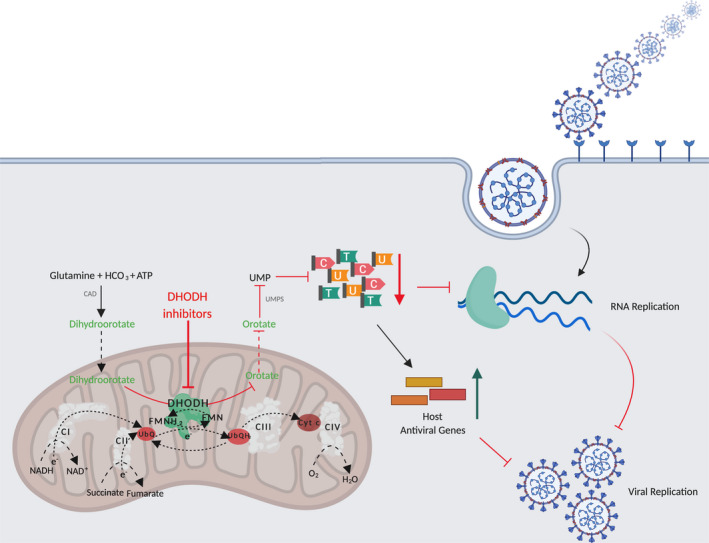Figure 1.

DHODH inhibitors prevent viral replication. Simplified depiction of de novo pyrimidine synthesis pathway and its role in viral replication. A series of enzymes catalyse the 6‐step pathway conversion of glutamine, bicarbonate (HCO3) and ATP into the final product, Uridine monophosphate (UMP), necessary for the production of pyrimidines. De novo pyrimidine synthesis is catalysed by the trifunctional CAD (carbamoyl phosphate synthase, aspartate carbamoyl transferase and dihydroorotase), DHODH and the bifunctional UMPS (orotate phosphoribosyltransferase and orotidine monophosphate decarboxylase). DHODH catalyses the fourth step, the oxidation of dihydroorotate to orotate, and is linked to the mitochondrial electron transport chain (ETC) via ubiquinone (UbQ) redox‐cycling. Inhibition of DHODH leads to pyrimidine nucleosides depletion that primarily affects RNA virus replication. The decrease of pyrimidine pools further triggers host antiviral genes expression and promotes innate immune responses. Both responses are a consequence of the reduction of pyrimidines and cause inhibition of virus replication and infection. Created with BioRender.com
